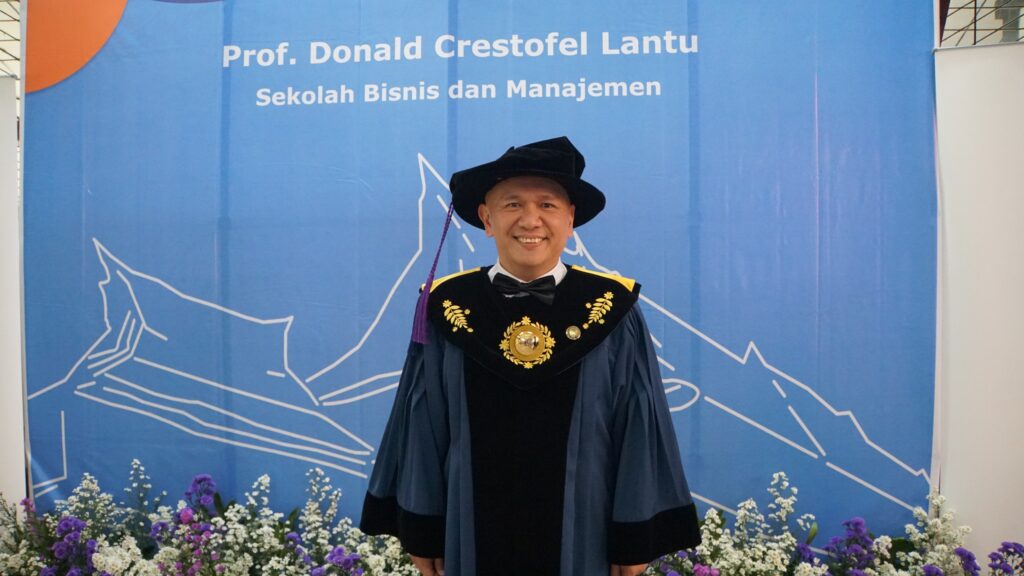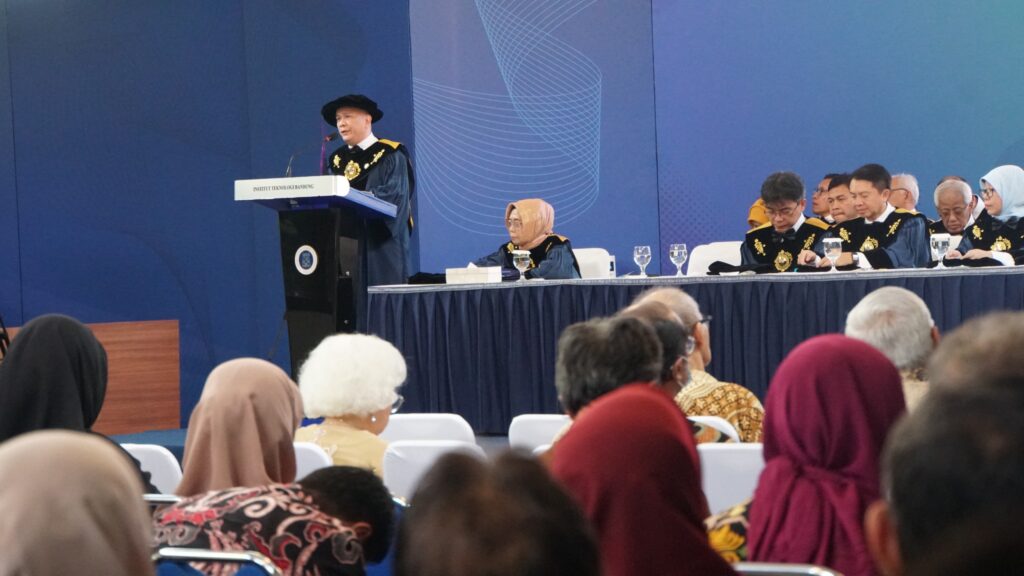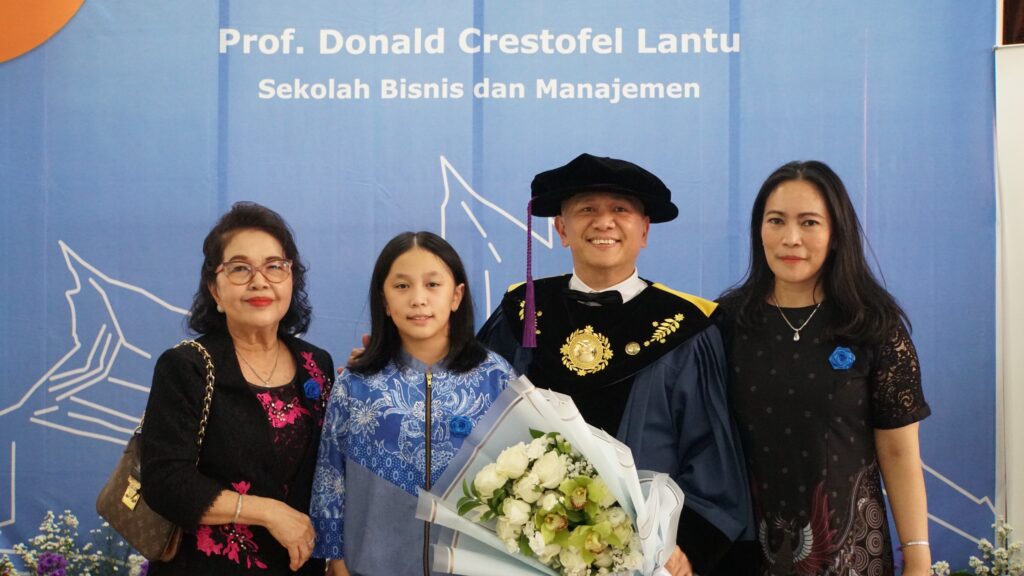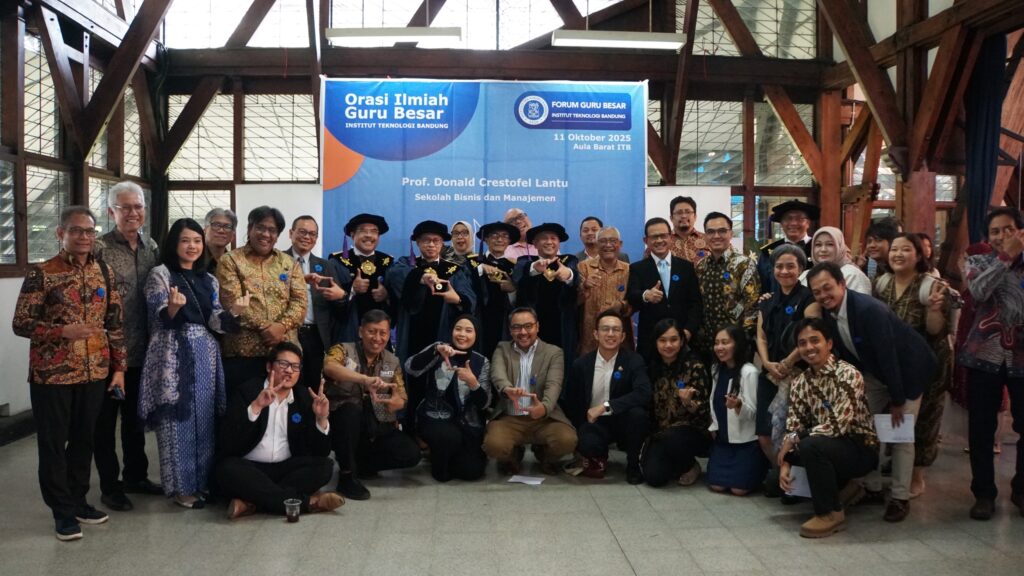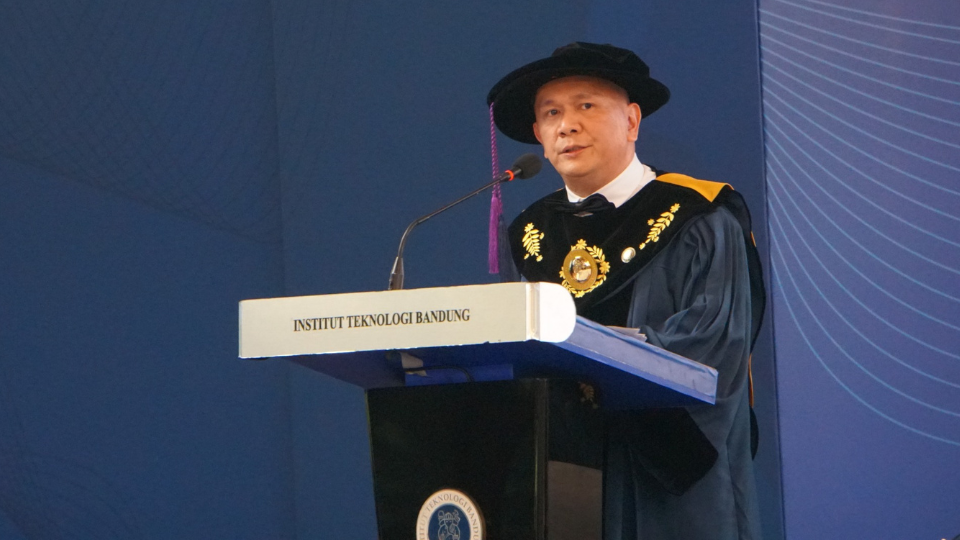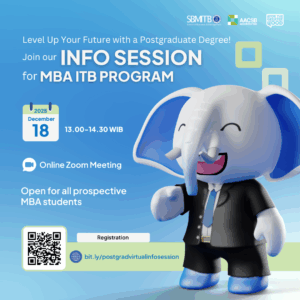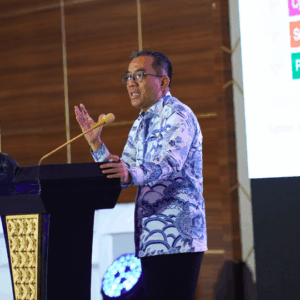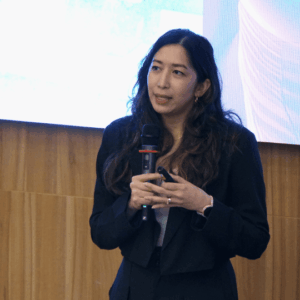In today’s digital era and business ecosystem, a digital leadership approach is becoming increasingly relevant. Leaders are required to utilize technology and online platforms to accelerate organizational transformation.
Professor Donald Crestofel Lantu, a member of the People and Knowledge Management expertise group at the SBM ITB, made this statement during his scientific oration at the Professors Forum at the ITB Bandung Campus on October 11. The topic of his presentation was “Business Leadership Development: A Paradigm Shift from Individual to Ecosystem.”
Professor Donald discussed the evolving nature of contemporary leadership, describing it as a social process shaped by the interactions among leaders, team members, and the organizational context. He emphasized the importance of collaboration, as well as ethics and the global context, as essential components of effective leadership. Such leadership should be built on integrity, inclusiveness, and alignment with cultural values to ensure it remains relevant and sustainable.
“Leaders are no longer viewed as superheroes. Instead, they are seen as the product of interactions among superiors, subordinates, and the organizational context,” he explained. “The ongoing discussion has evolved from a portrayal of heroic leaders who can drive organizations toward their goals. If they succeed, they receive praise; if they fail, they face criticism.”
Over the past two decades, the leadership landscape has undergone a shift from the VUCA (Volatility, Uncertainty, Complexity, Ambiguity) era to the BANI (Brittle, Anxious, Nonlinear, Incomprehensible) era.
“The paradigm shift in business leadership is moving from the individual to the collective or ecosystem. Success is now born from social interactions, from stability to adaptation, and from an internal orientation to global relationships,” he said.
This trend also introduced the concept of ambidextrous leadership, which involves striking a balance between exploitation for efficiency and exploration for growth.
“The focus of business today is on generating maximum cash flow by achieving efficiency through digital transformation, often known as the exploitation approach,” he explained.
In his research with Dr. Hidayat and Dr. Utomo, Prof. Donald referenced the ambidextrous leadership model developed at Harvard University, which organizes clusters based on the specific organizational context. He emphasized that leadership development should not be viewed as a long-term investment; rather, it is a present investment that needs to be implemented at all levels of the organization. This approach is essential for building competitiveness, fostering innovation, and ensuring the organization’s future sustainability.
Closing his oration, Prof. Donald stated that modern business leadership must be understood as a living and dynamic ecosystem, not simply an individual capacity. He stated that effective development programs must be integrated, tiered, and sustainable.
“Let’s build a sustainable ecosystem-based business and collective leadership culture, because leadership is a calling to serve shared progress, in line with the values of SBM ITB—For the Greater Good.”
Prof. Donald is a Professor in Business Leadership, inaugurated on December 1, 2024. He is widely recognized for his dedication to academics and business leadership. To date, he has mentored 10 undergraduate, 51 master’s, and 6 doctoral students, and serves as Deputy for Human Resources at SBM ITB.
